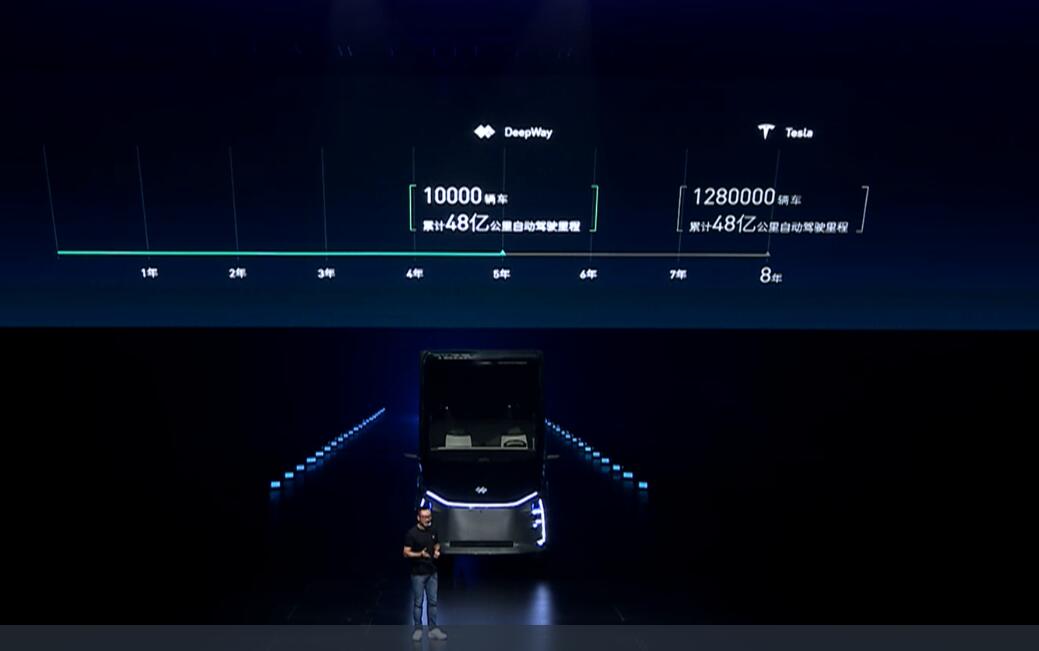Baidu-backed DeepWay unveils heavy truck that can support up to L4 autonomous driving

As Tesla's electric truck Semi is repeatedly delayed, a powerful player in the field has emerged in China.
DeepWay, a smart new energy truck company backed by Chinese tech giant Baidu, unveiled its first heavy truck, Xingtu, on Friday, marking the beginning of Baidu's self-driving technology being used in the freight market.
The first-generation Xingtu will initially enable L3 autonomous driving on high-speed freight routes, with plans to achieve high-speed L4 autonomous driving in the next three to five years.
DeepWay is targeting June 2023 for mass production of the Xingtu.
DeepWay is a joint venture formed by Baidu and Lionbridge Logistics late last year to explore opportunities in the robotruck sector using technology accumulated by Baidu's self-driving division Apollo.
Xingtu is equipped with the HIS system developed by DeepWay in-house, with a computing power of over 500 TOPS.
It has 10 cameras, 5 millimeter-wave radars, and 3 infrared detectors for end-to-end sensing-to-execution within 100ms and has an ultra-long-range sensing capability of over 1,000 meters, according to the company.
Xingtu is equipped with a 450 kWh lithium iron phosphate battery pack, which can last 300 km on a single charge at a full load of 49 tons.
At 1C current, the vehicle can be fully charged in just one hour, the company said.
DeepWay also developed a battery quick-swap solution for it, allowing the driver to complete the battery swap in as little as six minutes. The company did not release details about the battery swap station.
Simulation tests with the China Automobile Research Institute showed it has a wind resistance coefficient as low at 0.35, which reduces overall energy consumption. In comparison, the Tesla Semi truck has a wind resistance coefficient of 0.36.
"Autonomous driving must use advanced driverless technology to create new products that offer the ultimate experience in order to achieve commercial success," said Wang Yunpeng, vice president and general manager of autonomous driving technology at Baidu.
"We aim to create value in real-life scenarios such as transporting people, delivery and life services. This new generation of vehicle is by no means just a modified truck – it's a robot truck," Wang said.
Baidu entered the autonomous driving field in 2013 and has now accumulated eight years of technology, making it one of the world's leading autonomous driving companies.
As of the first half of 2021, Baidu's self-driving travel service has tested more than 14 million kilometers, according to the company.
Baidu robotaxi service expands coverage to five cities as Shanghai becomes latest










